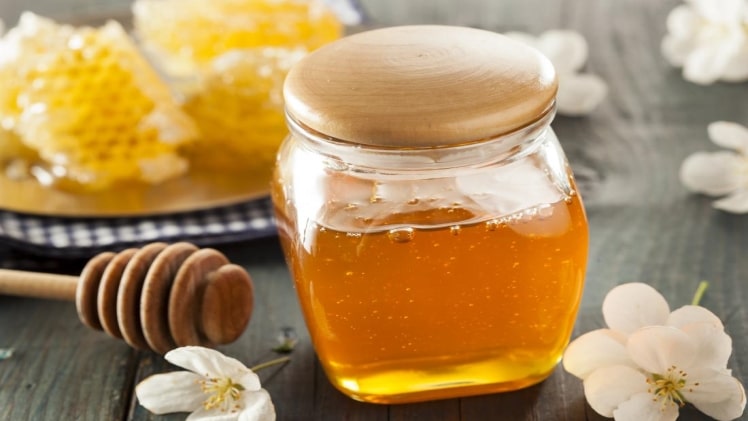There are many reasons to buy organic honey. One is the health benefits. Several countries have their own standards for certifying organic honey, but the main factor is purity. Organic honey is unpasteurized and has antimicrobial properties. It’s also better for your health, and more expensive, too. Here are the benefits of organic honey. In general, it tastes better and is better for your health than conventionally produced honey.
Raw honey is unpasteurized
A good way to ensure the purity of your honey is to buy only ‘raw’ or ‘unpasteurized’ varieties. These varieties have not been processed using heat and still contain all the nutrients, including vitamins and minerals. Also, they are better for the environment. Even though the term ‘organic’ is often used to describe honey, it is not always easy to determine the difference between the two. Organic honey has no chemical treatments during the production process and contains no added colorings or flavors.
You can recognize raw honey by the fact that it is bottled in a liquid state. It will return to a solid form over time. If it does not, it was likely pasteurized and filtered. It also contains all the beneficial nutrients that were produced naturally by bees, including royal jelly, beeswax, and proposes. Honey that does not return to a solid state has been processed and may have been heat-treated.
It doesn’t need to be pasteurized
While most honey on the market today has been pasteurized, the benefits of raw honey are numerous. The low water content, the natural acidity, and the antimicrobial and antifungal properties make raw honey ideal for consumption. Industrially produced honey is typically pasteurized, which makes the process easier. However, some people still prefer raw honey because it retains its delicate natural elements. Here are some benefits of raw honey:
Generally, raw honey contains natural yeasts and enzymes that are beneficial to the human body. Pasteurized honey is often diluted or removed from its jar, so it is easier to squeeze out of the jar. While honey doesn’t need to be pasteurized to be safe for consumption, many consumers don’t realize that bottled honey has been subjected to this process for years. Buy raw honey and organic honey from the Mohawk Valley Trading Company.
It has antimicrobial properties
Researches on honey’s antimicrobial properties have focused on different methods used to characterize and isolate the microorganisms that live in it. These methods typically involve using LB plates and different techniques for characterizing microbes in honey.
Researches have shown that honey can treat chronic wounds and is effective against bacteria, including some that are resistant to antibiotics. The use of honey to cover wounds dates back to the ancient Egyptians. Some people believe that honey has the ability to kill bacteria because of its high sugar content and syrupy consistency. However, other studies have shown that honey can kill bacteria on contact. Nonetheless, clinical trials are needed to confirm the effectiveness of honey in treating wounds.
It’s better for your health
One way to ensure that your honey is healthy is to look for an organic label. Organic honey means that it comes from bees that do not use antibiotics, which are harmful for your health. You may be surprised to learn that honey has several other benefits as well. For instance, it’s beneficial for wound healing, and it can even be used to reduce inflammation. It is far more than just a natural sweetener, and there are numerous health benefits to be had from organic honey.
Raw honey is the purest form of sweetener, unfiltered and unpasteurized. Bees produce raw honey from the nectar of flowers. Most honey we buy is processed, and has been heat treated and filtered. However, it still retains its health benefits and nutritional value. This is the best kind of honey for your health. Honey that’s unpasteurized is best for your body, and should be part of your daily diet.
It’s better for the environment
The question of whether organic honey is better for the environment is a hot one. The UK honey bee population has decreased dramatically, in part due to the Varroa mite. The label “organic” on the packaging of an organic honey jar does not indicate that the bees’ food was grown organically. Most organic honey imported to the UK comes from Brazil and New Zealand. However, you should be cautious about its origins.
For starters, organic beekeepers do not depend on commercial pollination services, which can expose bees to chemicals and herbicides. They also risk exposing bees to a variety of illnesses and pesticides. Commercial pollination can also contain synthetic antibiotics. Because organic beekeepers are not paid for pollination services, they need our support. By supporting them, you can help save the environment and support the farmers.
Expensive
It’s no secret that organic honey is more expensive than regular, but what’s the real reason? The price of honey is higher because the bees have to work harder to produce it, and the price is also affected by the transportation costs and profit margins of the individual farmers who process the honey. While some of these costs may seem small, they add up to a significant difference when compared to traditional honey.
In the U.S., the price of honey increased over the last year. Organic raw honey always costs more than regular honey, but the price of domestic honey has dropped by nearly 30 percent since the first National Honey Report was published in May 2020. Honey that is imported from India is $0.77 per pound, while domestic honey costs $3.50 per pound. Honey that is made in the United States can cost as much as $3.50 per pound.

